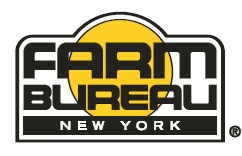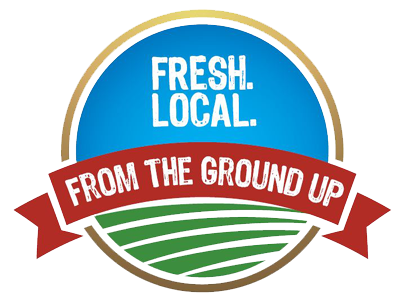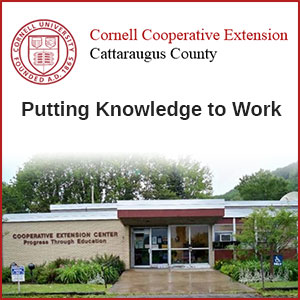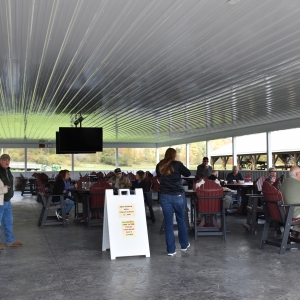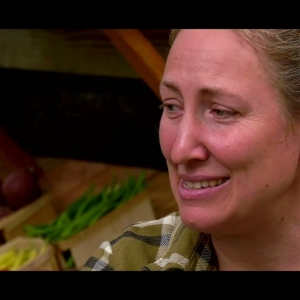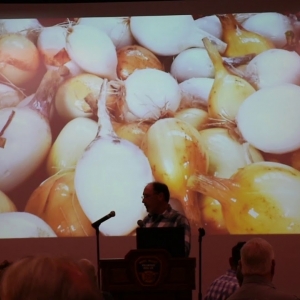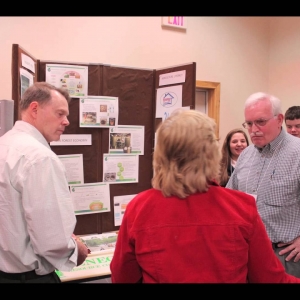Other Ag News: Release: NSAC Welcomes Pragmatic Senate Proposal as a Concrete Step Toward a Bipartisan Farm Bill Reauthorization
FOR IMMEDIATE RELEASE
Contact: Laura Zaks
National Sustainable Agriculture Coalition
press@sustainableagriculture.net
Tel. 347.563.6408
Release: NSAC Welcomes Pragmatic Senate Proposal as a Concrete Step Toward a Bipartisan Farm Bill ReauthorizationWashington, DC, May 1, 2024 – Today, the National Sustainable Agriculture Coalition (NSAC) applauded the renewed momentum toward a bipartisan farm bill reauthorization prompted by the Senate Agriculture Committee Chairwoman Debbie Stabenow’s (D-MI) release of a detailed section-by-section description of its farm bill reauthorization proposal. The Rural Prosperity and Food Security Act framework charts a path for completing a farm bill this year.
“NSAC is extremely encouraged to see a pragmatic Senate farm bill proposal that includes numerous bipartisan policies. The proposal takes meaningful steps to build a fair and accessible farm safety net for farmers and ranchers, protect conservation and climate spending, and invest in local and regional food systems. For countless farmers, ranchers, and food system stakeholders, this will jump-start a beleaguered farm bill reauthorization with workable policies that meet their needs. NSAC thanks Chairwoman Stabenow for her leadership and encourages Congressional agriculture leaders to seize the moment and work together toward a solid, bipartisan bill,” said Mike Lavender, NSAC Policy Director.
Simultaneously, the House Agriculture Committee released a topline summary of its farm bill proposal, which is currently expected to be marked up in late May. The brief five page summary raises significant concerns and represents a marked difference from the Senate’s proposal. Neither of the documents released today offer full legislative text, and NSAC will reserve final assessments of the farm bill and its impacts – from advancing racial equity to investing in healthy communities, leveling the playing field for small and mid-sized farmers, and building toward a climate-resilient future – until full bill text becomes available.
“The path to passing a farm bill in 2024 is through bipartisanship – a bill that invests in farmers, ranchers, and their communities while fully protecting nutrition assistance and the immensely popular climate-smart conservation funds included in the Inflation Reduction Act. Veering from that path is a recipe for inaction. NSAC thanks Chairwoman Stabenow, Ranking Member Boozman (R-AR), Chairman Thompson (R-PA-15), and Ranking Member Scott (D-GA-13) for their tireless work toward a 2024 Farm Bill reauthorization, and is eager to continue working together for a truly bipartisan farm bill,” Lavender added.
The following are select promising provisions based on NSAC’s initial analysis of the section-by-section framework of the Rural Prosperity and Food Security Act. In the days ahead, stay tuned to NSAC’s blog for continued analysis and coverage of the farm bill reauthorization, including the Rural Prosperity and Food Security Act.
Conservation, Research, and Climate
- Commits to reinvesting Inflation Reduction Act funding into four critical working lands conservation programs, and permanently improving those programs’ and farmers’ ability to address the climate crisis.
- Provides improved support for farmers addressing climate change through support for building perenniality into their operations, improving soil health, protecting water quality, operating organic systems, and building upon their conservation efforts over time.
- Delivers increased support for small and mid-sized farms, leading to improved access to working lands programs for more diverse operations.
- Authorizes the US Department of Agriculture (USDA) Climate Hubs and establishes an Organic Agriculture Research Coordinator, important steps forward in furthering research at the intersection of agriculture and climate change.
- Protects and maintains the farmer-driven Sustainable Agriculture Research and Education (SARE) program.
- Increases investments in 1890 land-grant institutions, including mandatory funding for the 1890’s Scholarship Program and four new 1890’s Centers of Excellence.
Local and Regional Food Systems
- Sustains investments in local meat processing which expands processing options for farmers by providing food safety resources, meat processing workforce development funding, and expansion grants for meat processors themselves.
- Continues support for the Food Safety Outreach Program, a critical program in light of forthcoming food safety rules, which will demand further outreach to underserved farming communities.
- Permanently authorizes the Local Food Purchase Assistance Cooperative Agreement program with a combination of mandatory and discretionary funding to purchase agricultural products from underserved producers nationwide. The program will continue to offer a funding set-aside for Tribal communities.
- Enhances access for under-resourced organizations and underserved farmers to proven, effective and impactful local food programs by removing match requirements for Farmers Market and Local Food Promotion Grants and Value-Added Producer Grants.
- Improves access to local foods using SNAP benefits, through investments in the Gus Schumacher Nutrition Incentive Programs and the Senior Farmers Market Nutrition Program, as well as simplifying vendor applications for farmers and farmers markets.
- Builds upon the popular Food Supply Chain Guarantee Program while expanding it to also include grants for essential employee training, food safety training and certification.
- Offers much needed support for urban agriculture and innovative producers through mandatory funding and the ability to scale and reply to program demand through increased discretionary funding. The proposal also invests in community partnerships that have experience serving urban and underserved producers while providing tweaks to ensure that urban and small-scale agriculture is better served by the Office.
Farm Safety Net and Fair Competition
- Removes barriers to access existing farm safety net programs for beginning, small to mid-sized, and diversified farmers with needed improvements to Whole-Farm Revenue Protection and the Noninsured Crop Disaster Assistance Program, in addition to new pathways to coverage and discounts for beginning and veteran producers.
- Authorizes USDA to consider premium discounts tied to the voluntary adoption of certain conservation practices, expands sodsaver nationwide, and directs the Federal Crop Insurance Corporation to consider crop genetics and worsening weather in a more regular review of risk-rating metrics.
- Closes loopholes to actively engaged requirements and strengthens the means test for commodity program payment eligibility from $900,000 to $700,000 to ensure taxpayer dollars benefit working farmers, not absent landowners.
- Expands farmers’ ability to access credit from USDA by removing the seven-year graduation requirement, restores loan eligibility to farmers who have previously received forgiveness, and increases limits of direct operating, farm ownership, and micro loans.
- Reauthorizes and sustains mandatory funding for the Farming Opportunities Training and Outreach program, which houses USDA’s flagship training and technical assistance programs for historically underserved producers.
- Provides critical safeguards, investigatory power, and research needed to combat the continued consolidation of livestock and poultry markets by creating the Office of the Special Investigator for Competition Matters.
- Takes steps toward advancing solutions for workers in order to create a more truly sustainable food system.
###
About the National Sustainable Agriculture Coalition (NSAC)The National Sustainable Agriculture Coalition is a grassroots alliance that advocates for federal policy reform supporting the long-term social, economic, and environmental sustainability of agriculture, natural resources, and rural communities. Learn more and get involved at: https://sustainableagriculture.net
The post Release: NSAC Welcomes Pragmatic Senate Proposal as a Concrete Step Toward a Bipartisan Farm Bill Reauthorization appeared first on National Sustainable Agriculture Coalition.
Signup for the Ag Newsletter
Get the freshest farm news, events and updates from in and around Cattaraugus County, NY at least once a month! Go signup!
Other ways to stay connected:
Get Involved in Farming
Resources for Starting a Farm in Cattaraugus County
Profile of Cattaraugus County soils
Agriculture Career Exploration
Questions about farming? Find out Who to Call

